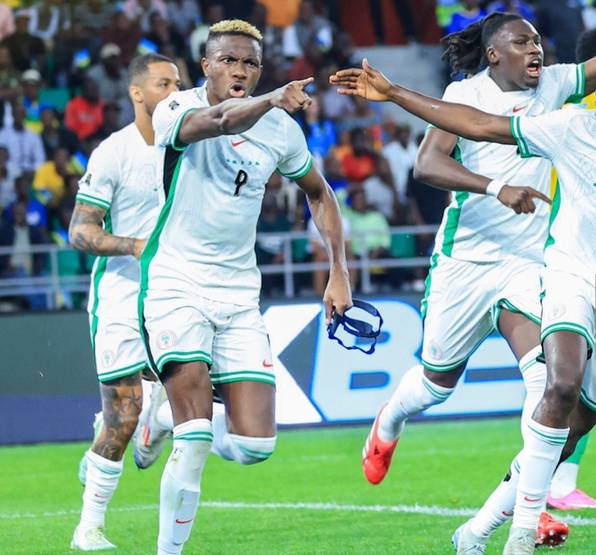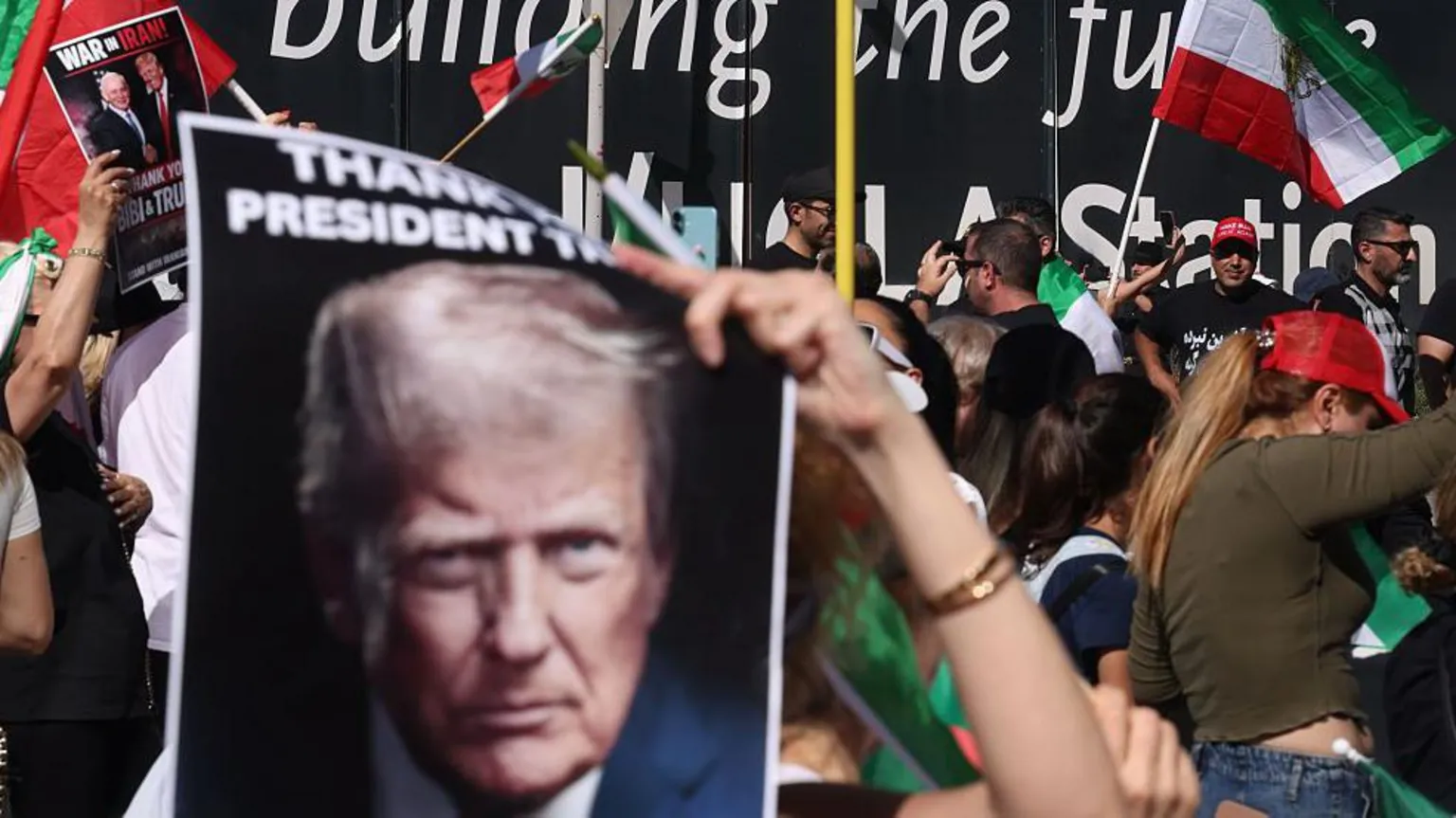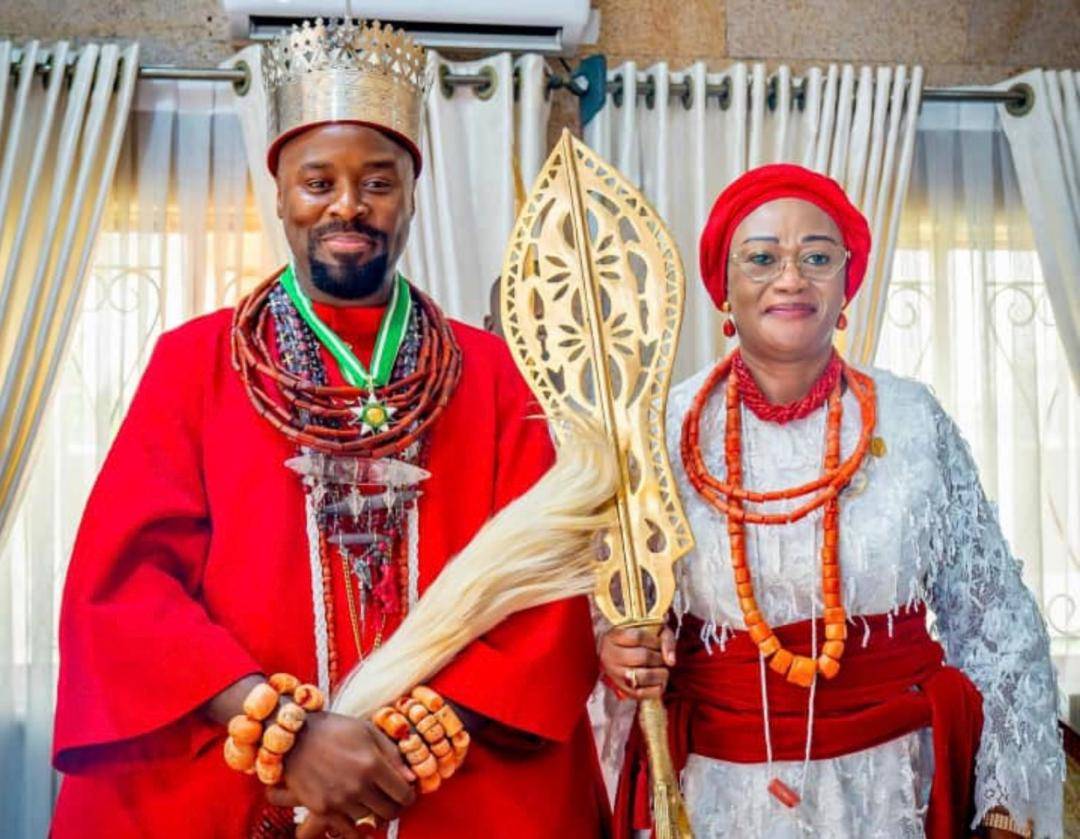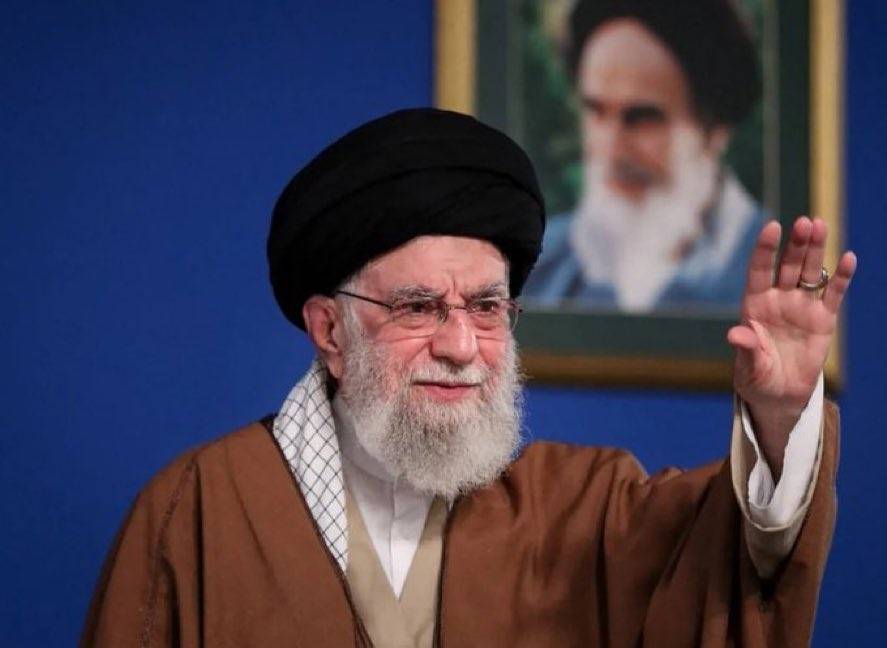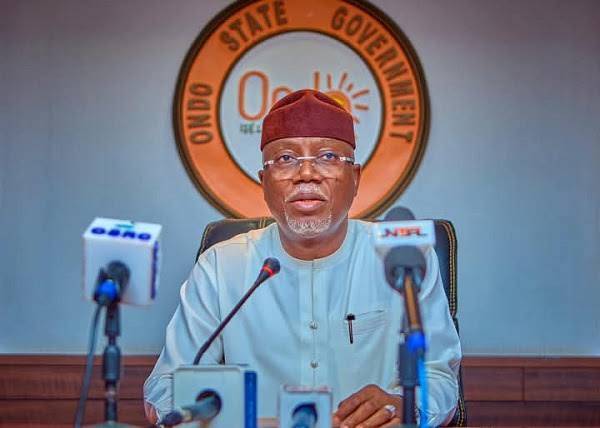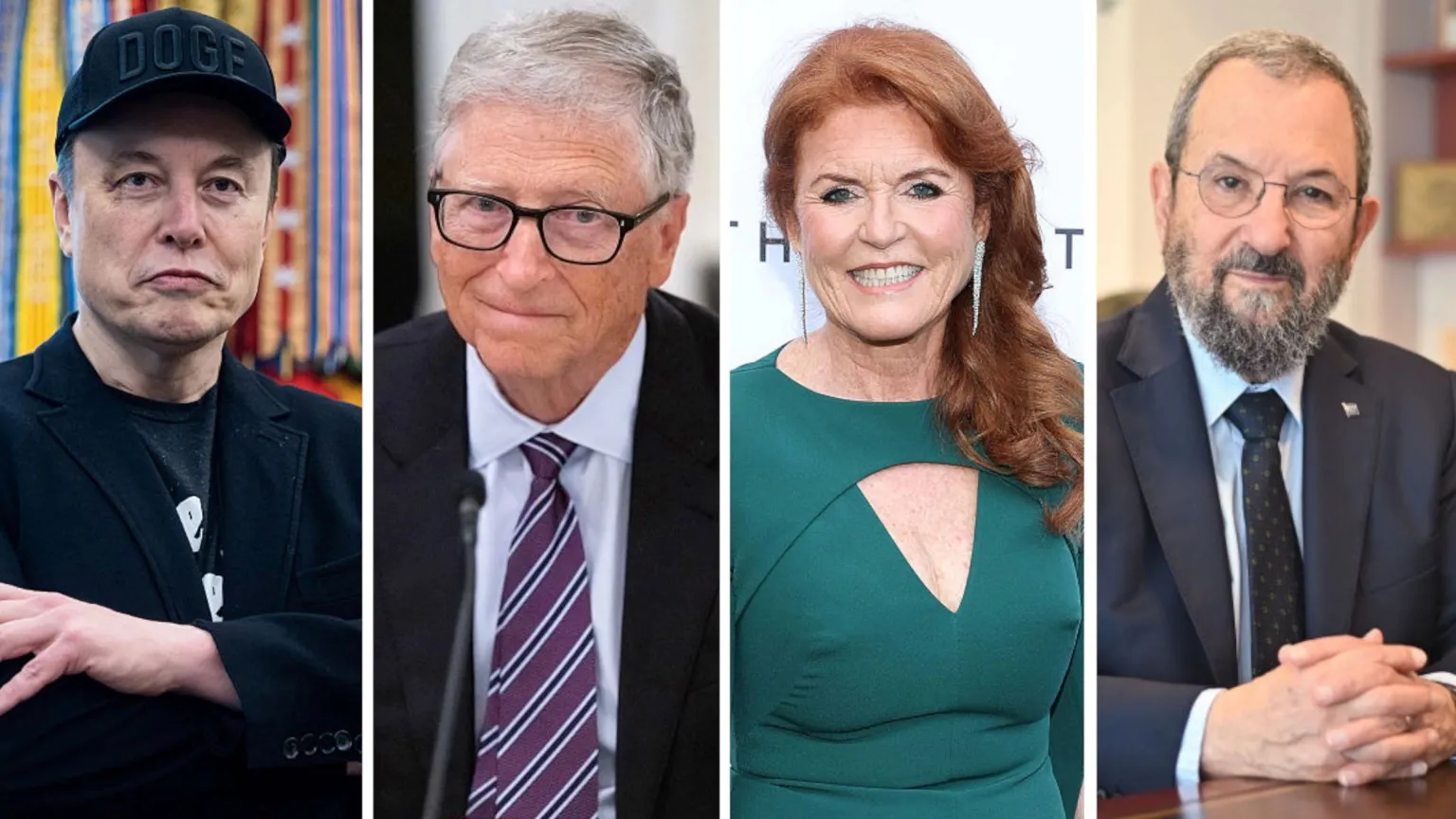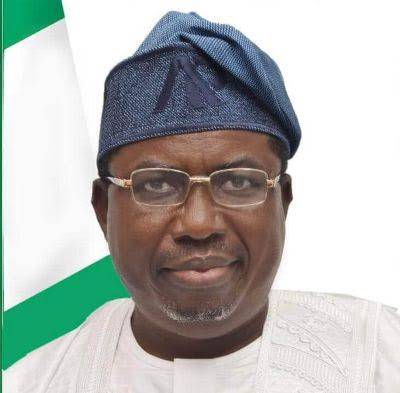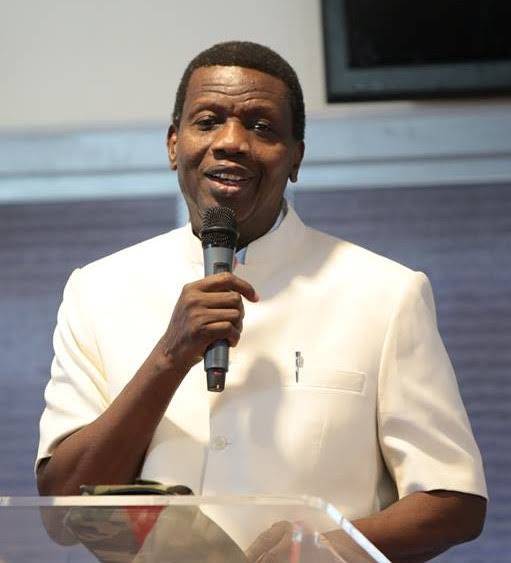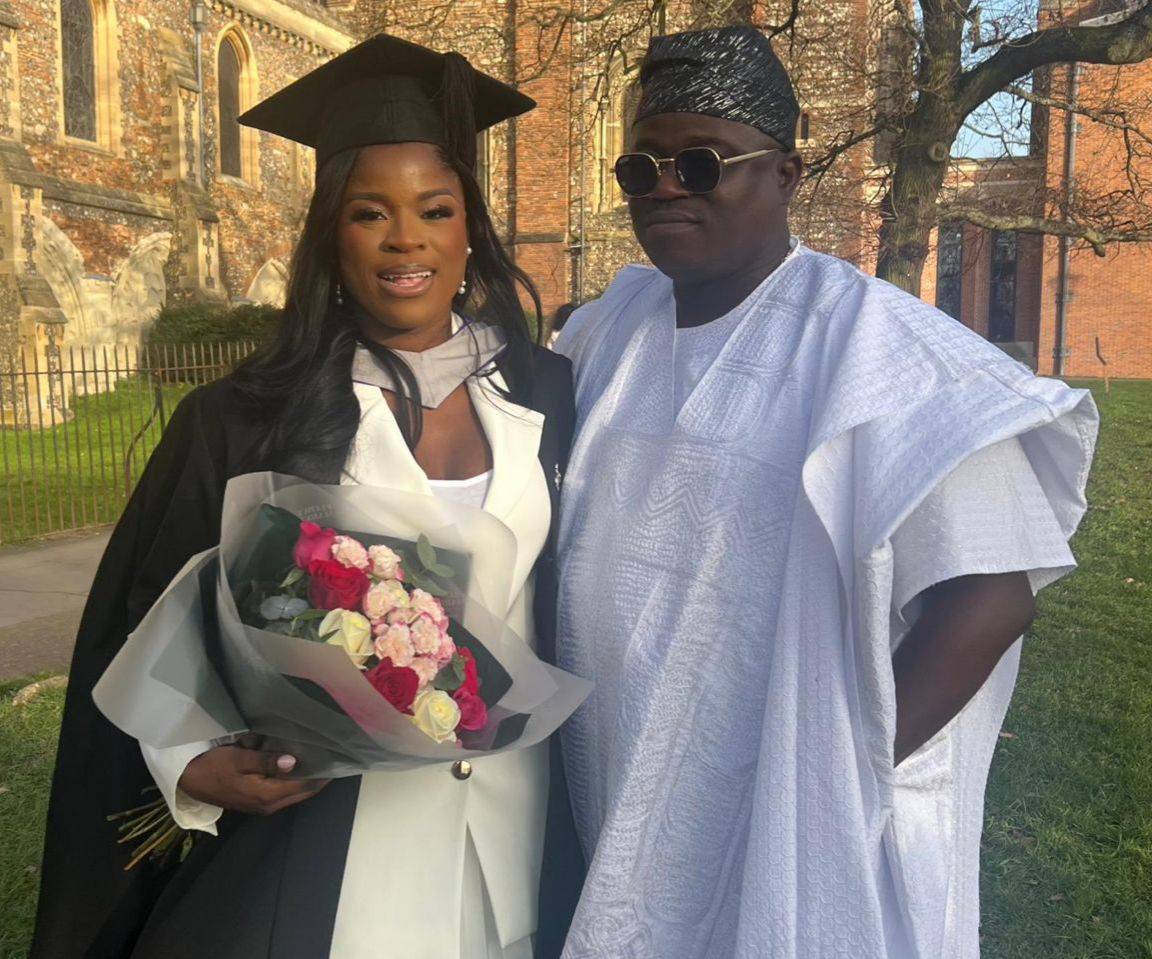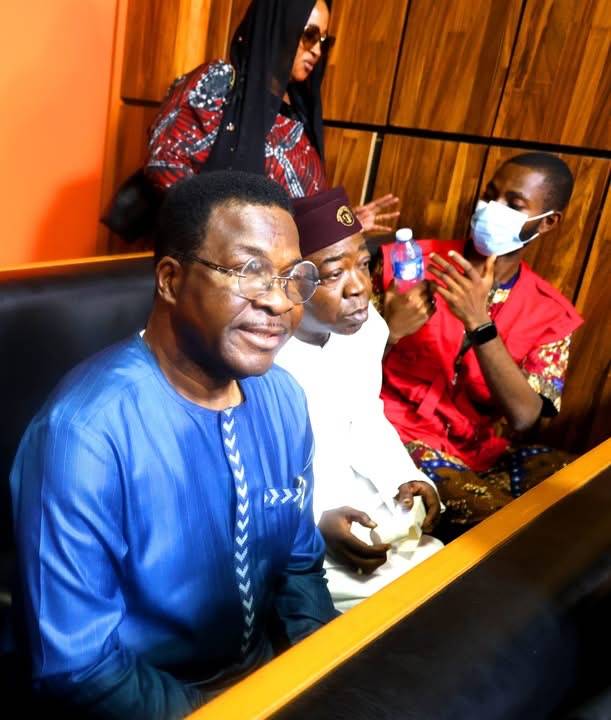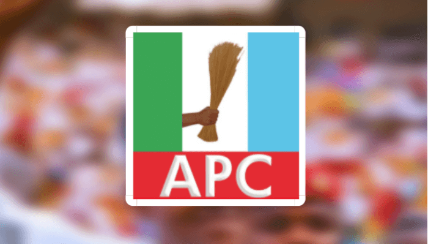By Jonathan Nda-Isaiah
It’s that time of the year when every football fan in Nigeria has become a mathematician and statistician. With the draw against South Africa on Tuesday, Nigeria’s chances of playing in next year’s World Cup in the USA, Canada and Mexico have become slimmer than a Lagos traffic warden’s patience.
The numbers don’t lie, and they’re as painful as they are embarrassing. South Africa are in pole position with 17 points and +8 goal difference. Benin – yes, tiny Benin – are second with 14 points, sitting pretty three points ahead of Nigeria. We’re tied with Rwanda on 11 points but ahead only on goal difference. Rwanda! A country that was rebuilding from genocide, while we were celebrating our football glory days.
Nigeria’s remaining fixtures are simple but daunting: we must beat Benin at home, then thrash Zimbabwe away. No draws, no narrow wins, no room for the kind of lacklustre performances that have characterised this campaign. We need six points and goals – lots of goals – to even dream of qualification.
The mathematics is brutal but clear. For direct qualification, we need South Africa to slip up while we win convincingly. For the playoff route through being among the best four runners-up, we still need maximum points and a healthy goal difference. Either way, there’s no room for error against teams we should be beating in our sleep.
But here’s what really grinds my gears – it’s sad that in a group with minnows like Benin, Rwanda, Lesotho and Zimbabwe, we are struggling to qualify. On paper, Nigeria arguably has the best team in Africa, but that has failed to translate to success on the pitch. It’s like having a Ferrari and finishing behind bicycles in a race.
It will be catastrophic for Nigeria to miss out on the World Cup for the second consecutive time, especially a World Cup that will feature nine African teams. Does it mean we can’t be among the top nine teams in Africa? The shame of it is suffocating.
There’s enough blame to go around, and trust Nigerians to start pointing fingers in all directions. Some have called for the complete overhaul of everyone at the Nigerian Football Federation (NFF). Others want coach Eric Chelle’s head on a platter, along with some senior players who they believe have outlived their usefulness to the national team.
The usual suspects have also started calling for our ex-internationals to head the NFF, as if former playing experience automatically confers administrative competence. But I think that’s not a guarantee of success either. We’ve tried that approach before with mixed results.
My thoughts on the coaching situation? We have an Africa Cup of Nations in December, and sacking the coach now would be unwise. It’s like changing pilots mid-flight during turbulence. The disruption would likely do more harm than good with such little time to prepare for AFCON.
The average Nigerian football lover wants us to employ a grade A European coach like Pep Guardiola, Jurgen Klopp, or Jose Mourinho. But do we have the resources to pay them? I don’t think so. These coaches earn more in a month than the NFF’s annual budget. We need to be realistic about our financial limitations while maximising what we have.
So we should leave Chelle to take us to the Nations Cup in December, and anything less than winning AFCON should be considered a failure. With the talent at our disposal, settling for anything less would be unacceptable.
But let’s address the real issues beyond coaching. Our domestic league remains a joke, making it difficult to develop and maintain quality players at home. Our youth development system is non-existent, forcing us to rely on diaspora players who sometimes lack the hunger and commitment of homegrown talent.
The NFF’s administration is also problematic. They spend more time on politics and personal enrichment than on football development. Until we fix the structural problems, changing coaches every few months won’t solve anything.
What’s particularly frustrating is that this World Cup will be historic – the first with 48 teams, meaning more opportunities for African representation. Yet Nigeria, with all our resources and talent, might be watching from home while countries with a fraction of our capabilities book their tickets to North America.
The psychological impact of missing consecutive World Cups cannot be overstated. A generation of Nigerian players will have their careers defined by failure to reach football’s biggest stage. Young players might start looking elsewhere for international representation if they believe Nigeria can’t deliver on the biggest platforms.
We also can’t ignore the technical deficiencies that have plagued this campaign. Our inability to break down defensive teams, poor finishing, and tactical inflexibility have cost us valuable points. These are coaching issues that should have been addressed months ago.
The South Africa draw was particularly painful because it was a game we dominated, but couldn’t convert chances into goals. It’s becoming a recurring theme – we create opportunities but lack the clinical edge to punish opponents.
That’s championship mentality versus participation mentality.
Looking at our remaining fixtures, Benin at home should be straightforward, but this same Benin team has already shown they can get results against us. We can’t afford to underestimate them or approach the game with the arrogance that has cost us points throughout this campaign.
The Zimbabwe away fixture could be tricky if we don’t handle the pressure properly. Playing with the desperation of needing goals while maintaining defensive discipline requires mental strength and tactical intelligence that we haven’t always displayed.
Come to think of it, our qualification struggles reflect broader issues in Nigerian football. We’ve become comfortable with mediocrity, celebrating minor achievements while our standards continue to drop. Countries that used to look up to us are now outperforming us consistently.
The fans deserve better. After years of disappointment and broken promises, Nigerian football supporters still turn up with hope and passion. They deserve a team that fights for every ball, respects every opponent, and understands the privilege of wearing the green-white-green.
If we fail to qualify for this World Cup, heads must roll. Not just the coach, but the entire system that has failed to maximise our enormous potential. We can’t keep making the same mistakes and expecting different results.
But for now, mathematics and hope are all we have left. Six points from two games, some help from other results, and maybe – just maybe – we can avoid the embarrassment of watching the World Cup from our living rooms again.


